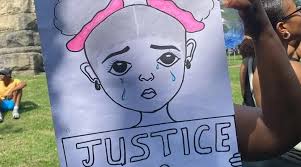Eastern Cape – A case that shook South Africa to its core may not go to court after the National Prosecuting Authority (NPA) said there is no conclusive evidence that seven-year-old “Cwecwe” was raped.
The alleged assault, said to have happened in October 2024 at Bergview College in Matatiele, sparked a national outcry. By April, protests had spread across the country demanding justice for the young girl.
But behind the scenes, the NPA had already made its decision months earlier. In November 2024, prosecutors declined to pursue the case after a review of the evidence presented by police. According to NPA spokesperson Mthunzi Mhaga, interviews and medical examinations failed to confirm that rape or sexual assault had taken place.
Despite this, outrage continued to grow, fueled by social media speculation and public statements from officials. Accusations were leveled at the school principal and a caretaker, with their personal information widely shared online. Police Minister Senzo Mchunu even referred to the principal as a suspect, adding to the controversy.
However, AfriForum—which is now representing both the principal and caretaker—insists their clients were never officially named as suspects by the authorities. The police later conceded this point.
In response to mounting public pressure, police reopened the investigation and appointed a top official, Major General Mmantsheke Lekhele, to oversee the case. But attempts to move forward hit a roadblock when Cwecwe’s mother declined to allow further interviews with her daughter, saying the child was still unwell.
A private doctor had initially confirmed signs of rape, and GroundUp was shown a medical report supporting this. But the police say they found no foreign DNA on the child’s clothing and could not collect new forensic evidence.
AfriForum claims the investigation is being driven by public pressure rather than solid evidence. “Innocent people have been convicted in the court of public opinion,” the organization said in a recent statement.
The case remains in limbo, with the police resubmitting the docket for reconsideration. Meanwhile, communities across South Africa continue to demand justice—whether for a crime that happened, or for those wrongly accused.

